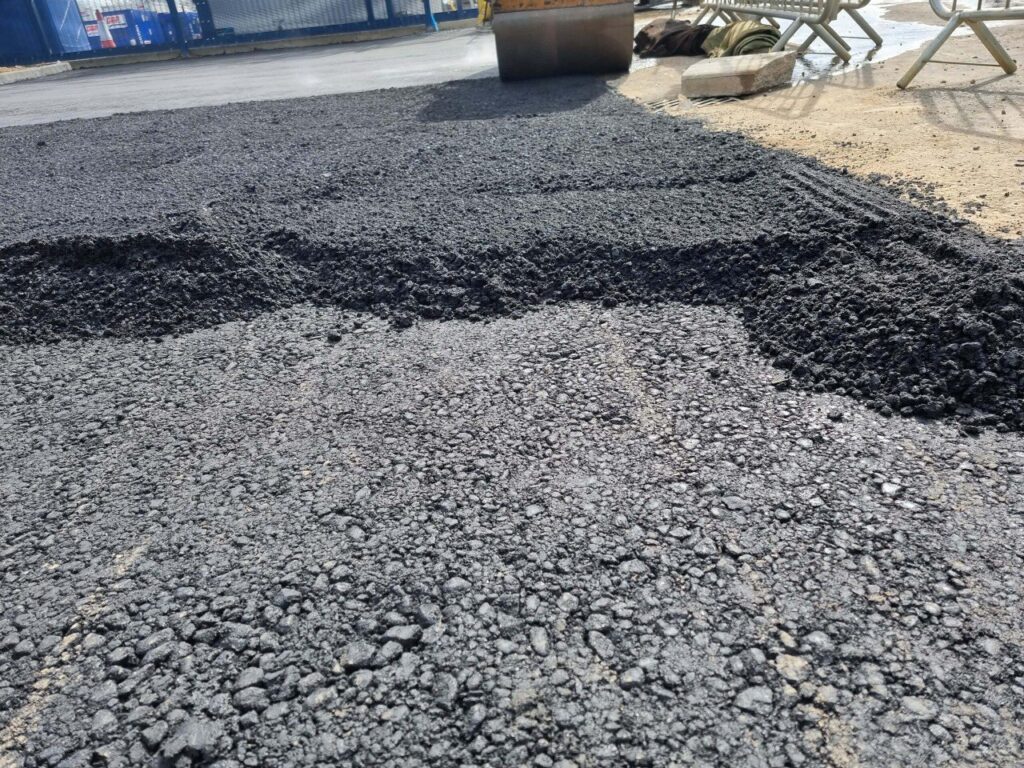The Role of Tarmac in Sustainable Transportation
Introduction: Sustainable transportation is a critical component of addressing environmental challenges, reducing carbon emissions, and improving the quality of urban life. Tarmac, or asphalt, is pivotal in advancing sustainability within the transportation sector. In this blog post, we will explore how tarmac contributes to sustainable transportation and the environmental benefits it offers.
1. Durability and Longevity
One of the primary ways tarmac contributes to sustainable transportation is through its durability and longevity. Well-constructed tarmac roadways and surfaces can withstand heavy traffic, extreme weather conditions, and wear and tear over time. This longevity reduces the need for frequent road repairs and reconstruction, saving resources and minimising the environmental impact associated with road maintenance.
2. Energy Efficiency
Tarmac is known for its energy-efficient properties during construction and everyday use. Tarmac production involves less energy than other construction materials like concrete. Additionally, the tarmac’s dark colour absorbs sunlight, which can help reduce snow and ice buildup in colder climates, improving safety and reducing greenhouse gas emissions from snowplough operations.
3. Recycling and Reuse
Tarmac is a highly recyclable material. Reclaimed asphalt pavement (RAP) is commonly used in road construction and rehabilitation projects. Recycling old tarmac materials reduces the demand for new resources, conserving energy and raw materials. This sustainable practice also minimises waste in landfills.
4. Lower Noise Pollution
Tarmac road surfaces are known for their ability to reduce noise pollution compared to other road materials. Quieter roadways improve the quality of life for residents living near busy streets and highways. Additionally, reduced noise pollution has been linked to improved health outcomes and reduced stress levels in urban environments.
5. Water Management
Tarmac surfaces can be designed with sustainable water management features. Permeable tarmac, for example, allows rainwater to infiltrate the surface and replenish groundwater, reducing the risk of flooding and minimising the need for extensive stormwater drainage systems.
6. Warm-Mix Asphalt
Warm-mix asphalt is an innovative technology that allows tarmac to be produced at lower temperatures than traditional hot-mix asphalt. This reduces energy consumption during production and lowers greenhouse gas emissions. Warm-mix asphalt also improves worker safety by reducing exposure to high temperatures.
Conclusion: Tarmac plays a significant role in sustainable transportation by offering durability, energy efficiency, recyclability, noise reduction, and water management capabilities. As cities and communities strive to create more eco-friendly transportation systems, tarmac surfaces contribute to achieving these sustainability goals. At Folkestone Driveways & Surfacing, we are committed to promoting sustainable transportation through high-quality tarmac construction and maintenance, helping to build a greener and more efficient future for our communities.
Call us on: 01303 763 895
Click here to find out more about Folkestone Driveways & Surfacing
Click here to complete our contact form and see how we can help with your driveway needs.

